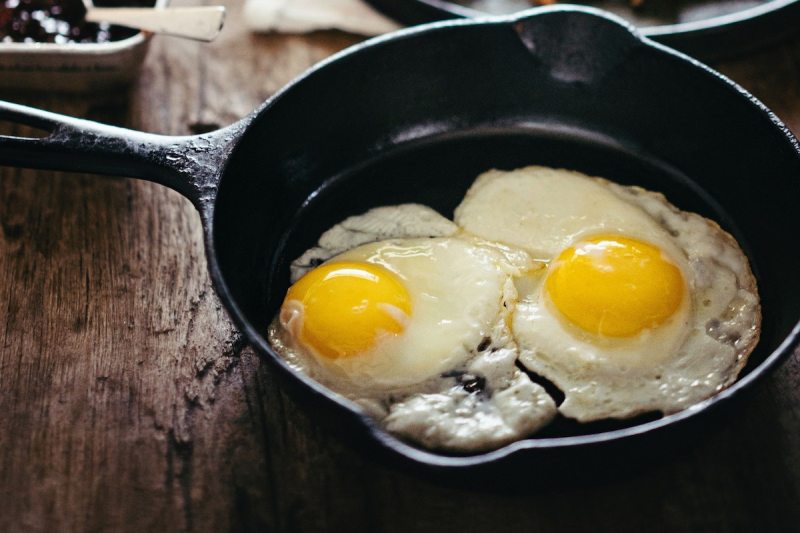Many foods have been debated when it comes to whether or not they are good for us, and the egg is one of them. As a nutritionist, I have spoken with clients on both ends — eggs contain cholesterol, so they should be limited, and eggs are nutritious, so they are healthy. Which one is right? Also, much of the concern seems to be centered on the egg yolk, so is sticking to egg whites your safest bet?
If you don’t want to give up your morning omelets but your’re a health-conscious person, keep reading to get all your questions about egg nutrition answered.
Are eggs good for you?

Eggs are a complete source of protein, which means that they contain all nine essential amino acids. They also are high in several key vitamins and minerals, so eggs are generally considered to be a healthy food.
In terms of egg nutrition, according to the USDA’s FoodData Central, one large whole chicken egg contains 72 calories, 6.2 grams of protein, 5 grams of fat, negligible carbohydrates and sugar, and small amounts of minerals such as sodium, calcium, magnesium, potassium, phosphorus, zinc, iron, and selenium.
Whole eggs also provide a decent amount of vitamin A, vitamin D, folate, and the antioxidants choline, lutein, and zeaxanthin, which support eye health.
The primary nutritional criticism of eggs centers on the amount of cholesterol in an egg. One whole egg contains 186 mg of cholesterol, all of which is found in the egg yolk. But while high levels of LDL cholesterol (that’s the bad one) can increase the risk of cardiovascular disease, Harvard Health shares that “research has shown that most of the cholesterol in our body is made by our liver — it doesn’t come from cholesterol we eat.”
Which is healthier: Egg whites or whole eggs?

If you’re looking to avoid cholesterol in your diet, eating egg whites is the way to go, but it’s important to understand that while egg whites do not contain cholesterol, they are devoid of most of the other essential nutrients.
For example, compare the differences in egg white and whole egg nutrition in terms of micronutrients for one regular large chicken egg:
|
Nutrient |
Egg white |
Whole egg |
|
Vitamin A |
0% of the DV |
27% of the DV |
|
Vitamin B12 |
0% of the DV |
19% of the DV |
|
Vitamin B2 |
11% of the DV |
18% of the DV |
|
Vitamin B5 |
1% of the DV |
15% of the DV |
|
Vitamin D |
0% of the DV |
19% of the DV |
|
Choline |
0% of the DV |
27% of the DV |
|
Selenium |
8% of the DV |
27% of the DV |
As you can see above, egg whites have very few vitamins and minerals.
With that said, egg whites contain about 67% of the protein found in an egg and are low in calories, making egg whites a good diet-friendly food for people looking to lose weight. For example, there are about 18 calories and 4 grams of protein per egg white in a large egg. So, do you like the taste of egg whites? Enjoy that egg-white omelet.
If, on the other hand, you like your eggs with the yolk intact, know that there are plenty of good nutrients lurking in that yellow liquid. As the American Heart Association points out, the research on egg nutrition has been inconsistent in the past because eggs are typically eaten with foods that have high levels of saturated fat. However, if the rest of your breakfast is healthy, there’s no reason to cut egg yolk out of your life completely. (As with any food, moderation is key.)
Frequently asked questions

Are two eggs a day enough protein?
Two eggs provide about 12 grams of protein, which may not be enough to meet daily protein needs — especially for active individuals. Most adults need a minimum of 50 to 100 grams per day, depending on activity level, body size, and goals. Consider adding other protein sources to your meals.
Is four eggs a day too much?
Four eggs a day can be part of a healthy diet for most people, providing around 24 grams of protein and essential nutrients. However, individuals with specific cholesterol concerns or dietary restrictions should consult a healthcare provider to ensure it fits their nutritional needs.
Is it better to eat two or three eggs for breakfast?
Eating two or three eggs for breakfast depends on your protein needs, hunger levels, and overall diet. Three eggs provide more protein and satiety, which can help with muscle maintenance and reduced snacking. Both options are healthy when paired with nutrient-dense foods like vegetables or fruit.




